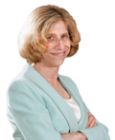Dreaming
Lost Love Dreams: A "Sign," or Only A Dream?
Can science prevail in a world of reality TV?
Posted December 29, 2011
When my family visited me last week, we went to a Chinese restaurant. As we opened our fortune cookies and enjoyed comparing our messages, I was reminded that I've been meaning to write a blog article on the lack of science education and the current climate of disdain for empirical evidence in the United States.
In my university adolescent psychology classes this Fall, when I discussed teen pregnancy, several students started a conversation among themselves about what they learned from a TV reality show about teen moms; to them, that was more real than whatever research studies I was talking about. I called everyone back to topic -- although they thought they were on topic.
This happens in classrooms all the time. I discuss research; they quote Oprah or MTV. In their research papers and reports, which are supposed to reference journal articles, they reference Wikipedia, Time magazine, or friends and family. One young woman countered that the research I cited on moral development in college-aged males must be wrong, because her boyfriend is "in a fraternity and he doesn't care about morality." Is this what evidence has come to: if I don't see it in my life or on TV, it's not true?
Science is out, and gut feelings are in. Never mind the data. It's all about ME. And it's all about right now; why bother with evolution or climate change?
Magazines and newspapers often don't help the public understand issues when it comes to reporting science. Journalism schools teach that writers should balance their stories with several experts who have different opinions, and some editors insist that they do. So the article gives you a scientist who has done climate research - and has the consensus of almost all scientists - but the writer then has to balance that and find someone who does not believe in climate change. By putting two experts in the article, it gives the impression that they carry equal weight. This is misleading to readers. If you go on the Internet, you can find a society of Flat Earthers, but that doesn't mean there is a difference of opinion as to whether the earth is round or flat.
I like to think of my website as science-based. I make clear that it's not a site for discussing horoscopes, dream revelations, crystals, and the like. But there's always a newbie who posts about how amazing her dream was, about her lost love, that led her to search for him and risk her marriage. And she is not alone: my 2004-2005 survey of 1600 men and women who tried a kindled romance asked, "What do you think motivated the reconnection to happen at this particular time?" The #1 response was, "Sudden dreams & obsessive thinking about my lost love."
Is a dream a "sign" of some sort, that someone should take seriously? Many lost love couples think so. They insist that their lost loves must be right for them, must be sent by a higher power through this dream. And that justifies the affair in their minds.
Some things are nonscientific. That means they are not testable. A poetic statement, like Carl Sandburg's, "The fog comes on little cat feet," cannot be proven or disproven. Nor can emotional appeals, such as Patrick Henry's "Give me liberty or give me death."
Other things are unscientific, which means they can be tested, and they are found to be false. If Grandma tells us, "Don't go out without your boots in the rain or you will catch a cold," we can see if that's true. We take a random sample of people. Half will go out without their boots in the rain and the other half will wear their boots; then we will see how many of each group catch a cold. Answer: it doesn't matter; the advice is unscientific.
Relying on crystal healing, ESP, or dreams is unscientific. We can record our dreams nightly, for years, and see how many of those dreams were meaningful in any way; we will learn that most dreams are fragments and don't relate to everyday life, while others are interesting, but we would never act upon them. I once had a dream that I was piloting a single engine plane, and I had to make an emergency landing on the highway; I took it down safely, got out, and when I looked behind me, the plane burst into flames. Interesting dream, but so?
"Confirmation bias" is a term coined by psychologist Peter Wason in the 1960's and expanded to include research in finance, law, medicine and politics: people recall the facts that support their preconceptions and make sense of their emotions, and systematically forget those that contradict these interpretations. Someone finds a horoscope in the newspaper and is amazed at how accurately it describes what is going on in their lives -- never mind that the horoscopes are vague enough to interpret as one chooses and that their horoscopes from the last 100 or 200 days had no personal relevance.
So someone will seize upon a dream that supports their feelings that they should be with their lost love, and ignore all other dreams, including those that may have been about their spouses, children, careers, strangers, enemies, whatever. When people falsely perceive an association between two unconnected events, it can lead to poor decision making.
People who started lost love affairs because of a dream were unlikely to wind up with their lost loves and very likely to leave the affair wondering how they could have done what they did. But they will not heed my advance warnings; my research did not engage them, because it is not what they want to hear. Dreams are more sexy than my numbers and profiles. But I will persist with offering my research findings and hope that what I have learned will help someone before they get into trouble.
We passed around our fortunes last week in the Chinese restaurant. Mine said, "You will have a successful professional career." The cookie can't lie -- it must be so!
copyright 2011-2012 by Nancy Kalish, Ph.D.
all rights reserved




